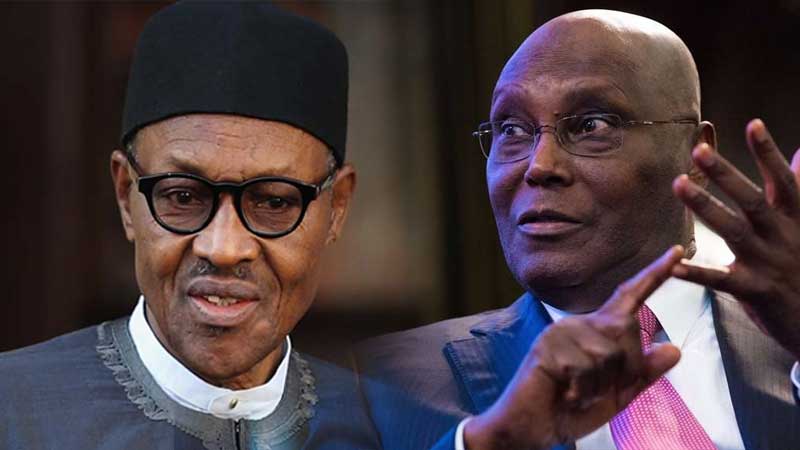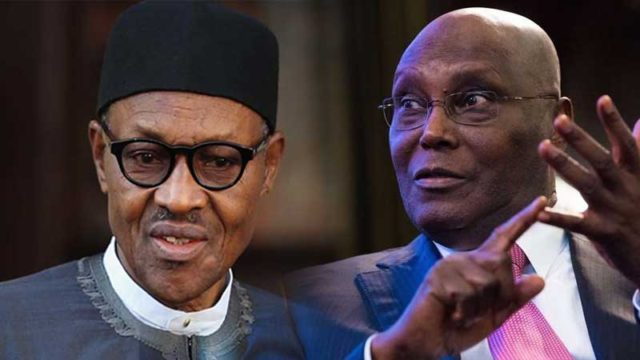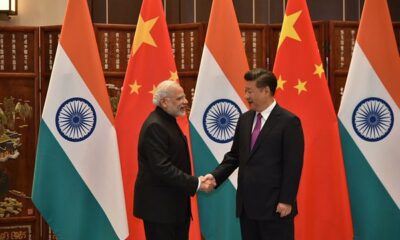Political Issues
2019: Buhari, Atiku test popularity in the Southeast -By Muhammad Ajah

While it is somewhat clear the popularity the incumbent President Muhammadu Buhari enjoys in the other four geopolitical zones of Nigeria, the Southeast and South-South zone still stand opposed to his candidacy and government. But the South-South is gradually titling to Buhari with the big regional and political colossuses like former governors of Akwa Ibom and Delta states, Obong Godswill Akpabio and Emmanuel Uduaghan respectively, pushing hard for Buhari ahead of 2019. An advantage to the efforts of the duo is the recent resignation of the PDP strongman and Rivers state governor, Nyesom Wike, as coordinator of Atiku’s campaign the region.
But my particular interest is in the Southeast geopolitical zone which I belong and which has yearned to produce a President of Nigeria. The Igbo have been continually drifted away from the position of the number one citizenship of Nigeria by their own presumed political allies from time immemorial. The key plotters against the Igbo political interest are, to me, at work again to keep the position continually elusive to the Igbo. But being from there, if my state governor, Engr. Dave Umahi, will keep his words to vote Buhari in 2019, my vote will be number two. Ebonyi, as well as other Southeast states, has some big names in Buhari’s camp, but their overall influences in the region are not much felt. Action speaks louder than voice, it is said.

The region has to choose between Buhari and Atiku for their political future. It is a choice that must be taken soon. Buhari gained popularity in the region especially in Imo state which was governed by the APC. In the run-up to 2019, the governors of the region have been very tactical in pushing for any candidate at the federal level. They have settled for the PDP in their states, save Anambra state under the APGA. The Imo governorship preferred aspirant of the APC and in-law to the incumbent governor, Rochas Okorocha, has deserted the APC, a twisted indication that the governor himself may not work for APC in 2019. If that is established, then the Southeast is further closing its borders against the APC. But what will Buhari and Atiku eventually take from the Southeast?
Abia, Ebonyi and Enugu states are PDP. Imo that was APC is now divided. Anambra is APGA but may be heavily influenced by the PDP due to the fact that the PDP vice presidential candidate, Peter Obi, is from Anambra. If these facts are anything to go by, then Atiku’s popularity in the Southeast is certain. Yet on this, can it be concluded that Atiku will win the votes of all the Igbo people? Despite being the least voting strength amongst the six geopolitical zones of Nigeria, what influence can Atiku’s alliance with the Igbo bear on the overall results in the forthcoming February Presidential polls?
However, something serious may happen in favour of Buhari in the Southeast. The Igbo, no doubt, hope to have an occupant of the Aso Rock Villa as President of Nigeria. The APC, under Buhari, has been promising to make an Igbo President on the condition that the Igbo practically display allegiance by voting for President Buhari for a second tenure. The Igbo in 2015 did not vote for Buhari. They voted for PDP, yet APC won. This time, Buhari is seeking for a second term that will end in 2023 if he wins in 2019. So, Buhari will have only another four years. The four years would have given the northern part of Nigeria an eight year-unbroken leadership of Nigeria which, since 1999 that democracy fully returned to the country, only the Yoruba, represented by former president Olusegun Obasanjo had successfully had between 1999 and 2007.
The north is determined to have its uninterrupted eight years through Buhari. With the coming of Atiku under the PDP, the weather is unclear if that will still the case. This is because, peradventure that Atiku wins, he may take another eight years. There are insinuations that he may seek for only one tenure of four years just like it is being circulated that Buhari allegedly sought. If any of them made such undertaking, that is mere political proclamation. Obasanjo and Jonathan even signed written pacts and rejected it when they had gained power. But it is like something spectacular is in the Aso Rock villa that requires force to push its occupants out when their legitimate tenure(s) end.
If Buhari and the APC are sincere in their position to hand over power to the Igbo in 2023 if the Igbo vote them, the Igbo are therefore left between waiting for the next four years or for the next eight years. And if the second option happens, the power will have to return to the Southern part of Nigeria predominantly controlled politically by the Southwest. By that, the Igbo will continue to hope in vain. I am afraid if the Igbo have learnt some lessons. If they claim to have, then the 2019 is a test. They should have this as a hint that with or without their votes, Buhari may have his way.
But let us not completely agree that the Southeast will give bulk vote to Atiku. Events leading to 2019 portend reservations. How Peter Obi, who seems not to be in the good record book of the north, emerged as Atiku’s running mate reveals an unseen force against Atiku. Obi’s choice has not gone down well with the Igbo leaders, including the governors, National Assembly members and key stakeholders of the PDP. Initially when Obi was announced, they met in Enugu and distanced themselves from the choice. In particular, the Chairman of Southeast Governor’s Forum, Engr. Dave Umahi, denied a statement by his chief press secretary congratulating Obi on his nomination.
Secondly, some Southeast governors and other major political office holders recently stayed away from Atiku’s installation as Waziri Adamawa in Yola. The only notable Southeast leader at the event was said to be a one-time Atiku’s aide, Emeka Ihedioha. The absence is said to be linked to the perceived disrespect Atiku had shown to the region’s political class since his emergence as the presidential candidate of the party.
Both Buhari and Atiku are pushing hard to win the Igbo votes. The ball is, therefore, in the court of the Igbo. Whether or not the Igbo will be the deciding factor for the victory of any of them, it is clear that the Igbo now have the yam and the knife. Whichever share they decide to give to Buhari and Atiku will definitely determine their political share and expectation in future.
Muhammad Ajah is an advocate of humanity, peace and good governance in Abuja. E-mail mobahawwah@yahoo.co.uk.



















